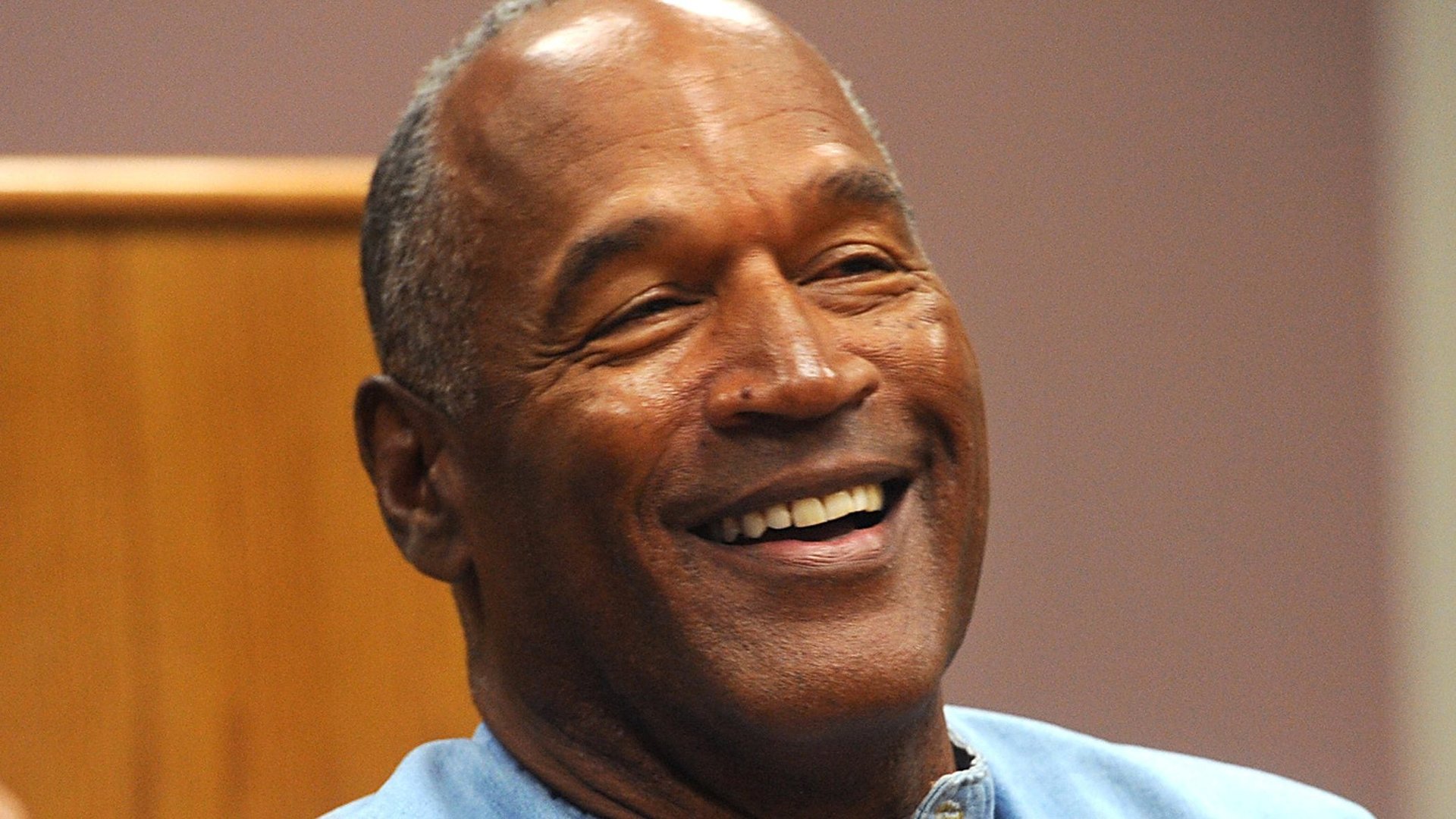Everything you want to know about OJ Simpson’s release from prison
One of America’s most famous inmates is about to be released from prison.


One of America’s most famous inmates is about to be released from prison.
OJ Simpson is to leave the Lovelock Correctional Facility in northern Nevada on parole after serving nine years of a 33-year sentence for armed robbery. The former NFL star, actor, and TV personality will become one of the 4.6 million people in the United States under “community supervision,” bound by multiple restrictions placed on people who had been convicted of a crime—but he will have several significant advantages over most.
When does he get released?
It’s unclear when exactly Simpson will leave prison. He’s eligible for release starting Sunday (Oct. 1), and could be out as early as Monday. However, Brooke Keast, a Nevada Department of Corrections spokeswoman told Quartz that Simpson could be held “for weeks” if necessary, to ensure his safety and “the community’s.” She said the department was being inundated by phone calls from paparazzi, and drones are circling in the prison’s vicinity. Officials are determined to avoid a media circus.
“The chase has already happened with this guy. We don’t want this again,” she said.
Why he is getting out of prison
Simpson received a steep sentence for his 2007 crime, a botched attempt to get back what he says were his belongings from a memorabilia collector in Las Vegas. His prison term was widely seen as a form of proxy punishment after he was found not guilty of murdering his ex-wife Nicole Brown Simpson and her friend Ron Goldman in a seminal 1994 case.
A Nevada parole board voted to let Simpson walk free in July, during his second parole hearing, using a set of guidelines that added up in Simpson’s favor—factors such as age, employment history, and conduct while in custody were considered.
Questions were raised about the process when the board said it did not consider Simpson’s 1989 misdemeanor conviction for domestic violence in their deliberations, because it wasn’t listed in a federal crime database. Prompted by the Simpson case, a Nevada lawmaker has introduced a bill that would require boards to look at domestic violence histories before granting parole.
His final days behind bars
Simpson was moved several months ago to “protective custody,” a single cell in a less-populated section of the prison. Keast said that if anyone wanted to make a “name for themselves” or to “elevate their status” within the prison walls—those serving life sentences, for instance—Simpson would be a good target. “We can’t risk that. We want him to leave healthy and happy.”
According to his lawyer, Simpson at first was “bored to tears” in his relative seclusion, but has been growing more and more excited about his release. He plans on eating seafood, steak and getting an iPhone when he walks free.
Keast said that the last day in a Nevada prison usually just involves an inventory of the inmate’s belongings, signing some documents and walking out the door. Generally, those who are paroled immediately meet with their parole officer and go over the terms of their release.
Where will he go next?
Simpson said during his parole hearing that he was planning to return to Florida, where he lived before his conviction, and where some of his family remains. Such transfers are routinely approved, but the Florida Department of Corrections told Quartz no plan has been presented to authorities.
If he is transferred to Florida, Simpson will be subject to parole terms and conditions to both states, Captain Shawn Arruti of Nevada’s parole and probation agency, told Quartz.
When in Nevada, Simpson will have to abide by the state’s terms of parole until it expires in 2022, as specified in his case.
He can’t move without the permission from his parole officer, and has to regularly report to the authorities. He can consume alcohol, but not “in excess.” His terms do not include a requirement to be employed. Here they are in full:
Parole Terms by Hanna Kozlowska on Scribd
[protected-iframe id=”484623a570703ed5a29c4cf9a00e2f5d-39587363-75954738″ info=”https://www.scribd.com/embeds/360252327/content?start_page=1&view_mode=scroll&access_key=key-zIisLN4ysX6QnkmqKDkS&show_recommendations=true” width=”100%” height=”600″ frameborder=”0″ class=”scribd_iframe_embed” scrolling=”no”]
His means of support
Simpson is in a much better position than the vast majority of inmates leaving prison on parole.
He has a supportive family, and will emerge from prison either well-off, or even wealthy. He will reportedly receive pensions from both the National Football League and the Screen Actors’ Guild, neither of which can be touched by creditors. (He owes up to $58 million dollars in the wrongful death lawsuit brought by the families of Goldman and Nicole Brown Simpson.)
Parole is not a full release from supervision
Parole can be a very restrictive experience, with stringent conditions, and debilitating costs. At least 61,000 inmates in the US are serving time for simply violating the terms of their parole, a Marshall Project investigation revealed. In 2013, nearly half of all the people sent to Wisconsin prisons were parole violators—the Milwaukee Journal Sentinel reported that the reasons could be as mundane as accepting a job or using a cellphone without permission.